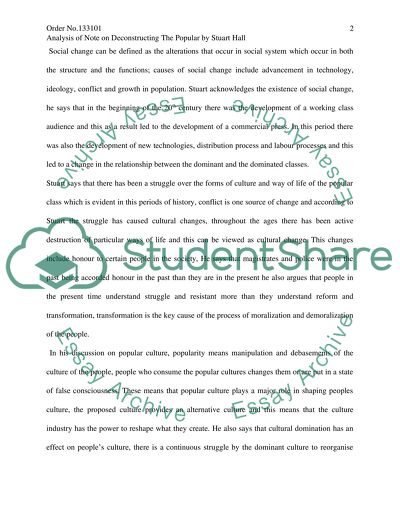Cite this document
(Note on Deconstructing the Popular by Stuart Hall Article, n.d.)
Note on Deconstructing the Popular by Stuart Hall Article. Retrieved from https://studentshare.org/media/1519969-analysis-of-note-on-deconstructing-the-popular-by-stuart-hall
Note on Deconstructing the Popular by Stuart Hall Article. Retrieved from https://studentshare.org/media/1519969-analysis-of-note-on-deconstructing-the-popular-by-stuart-hall
(Note on Deconstructing the Popular by Stuart Hall Article)
Note on Deconstructing the Popular by Stuart Hall Article. https://studentshare.org/media/1519969-analysis-of-note-on-deconstructing-the-popular-by-stuart-hall.
Note on Deconstructing the Popular by Stuart Hall Article. https://studentshare.org/media/1519969-analysis-of-note-on-deconstructing-the-popular-by-stuart-hall.
“Note on Deconstructing the Popular by Stuart Hall Article”, n.d. https://studentshare.org/media/1519969-analysis-of-note-on-deconstructing-the-popular-by-stuart-hall.


